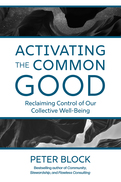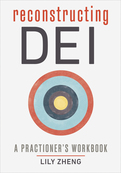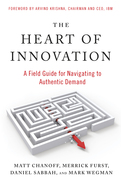
Download PDF Excerpt
Rights Information
The Ethical Sellout
Maintaining Your Integrity in the Age of Compromise
Lily Zheng (Author) | Inge Hansen (Author) | Tiffany Williams (Narrated by)
Publication date: 10/29/2019
We all fear selling out. Yet we all face situations that test our ideals and values with no clear right answer. In a world where compromise is an essential aspect of life, authors Lily Zheng and Inge Hansen make the bold claim that everyone sells out-and that the real challenge lies in doing so ethically.
Zheng and Hansen share stories from a diversity of people who have found their own answers to this dilemma and offer new ways to think about marginalization, privilege, and self-interest. From these stories, they pull out teachable skills for taking the step from selling out to selling out ethically. The Ethical Sellout is for all those committed to maintaining their integrity in a messy world.
Find out more about our Bulk Buyer Program
- 10-49: 20% discount
- 50-99: 35% discount
- 100-999: 38% discount
- 1000-1999: 40% discount
- 2000+ Contact Leslie Davis ( [email protected] )
We all fear selling out. Yet we all face situations that test our ideals and values with no clear right answer. In a world where compromise is an essential aspect of life, authors Lily Zheng and Inge Hansen make the bold claim that everyone sells out-and that the real challenge lies in doing so ethically.
Zheng and Hansen share stories from a diversity of people who have found their own answers to this dilemma and offer new ways to think about marginalization, privilege, and self-interest. From these stories, they pull out teachable skills for taking the step from selling out to selling out ethically. The Ethical Sellout is for all those committed to maintaining their integrity in a messy world.
• Chapter 1 •
Framing CHANGE
John formed his first band with his friends when he was sixteen years old. His mother gave him a cheap guitar to support his new hobby, but his family expected (maybe even hoped) that not much would come of it. Music wasn’t a real way to make a living, after all. Four years later, John’s band was still playing. It had been renamed, gathered some new members, and played regularly at red-light-district clubs around town.
One night, the band’s growing underground popularity attracted the attention of a local record-store owner who recognized their untapped mainstream potential. After wooing John and his bandmates with talk of record contracts and stardom, this man was signed on to be their manager. True to his word, he catapulted John’s band to success—but at a price. He told them that their underground look would have to go. They had to dress and act differently than they wanted: wear “professional” clothing on stage and tame their stage presence. John resisted the idea but eventually gave in, saying, “I’ll wear a bloody balloon if somebody’s going to pay me.”
The band John Lennon formed, the Beatles, gained international stardom, yet John felt conflicted about how they got there. In a 1971 Rolling Stone interview, he stated, As soon as we made it, we made it, but the edges were knocked off.
You know [our manager] Brian put us in suits and all that, and we made it very, very big. But we sold out, you know. The music was dead before we even went on the theater tour of Britain….
The Beatles music died then, as musicians. That’s why we never improved as musicians; we killed ourselves then to make it.1
Define “Sellout”
When we first started interviewing the people whose stories appear in this book, we asked each of them to define the word “sellout.” Here are a few of the answers:
• “When you sell out, you have nothing left of your ‘authentic’ self to give.”
• “Sacrificing the integrity of your original mission.”
• “Compromising your ethics or code of values for money.”
People’s understanding of what makes a sellout is surprisingly consistent. In fact, it matches up well with Dictionary.com’s definition:
sellout
noun
A person who compromises his or her personal values, integrity, or talent, or the like, for money or personal advancement.
“Sellout” isn’t a word that many think of in neutral terms. Say the word in your head and you might catch yourself injecting a hint of malice in it, a bite of scorn. You’d likely say it the same way you might say “traitor,” “poser,” or “liar.” Start imagining the face of a modern-day sellout and you’ll soon see why. You might think of the politician who leaves campaign promises unfulfilled after meeting lobbyists with deep pockets, or the musician who turns their back on their roots to pursue big record deals and corporate sponsorships. You might think of the small-town nobody who strikes it rich and leaves their old friends and communities behind or the activist who backsteps on their radical opinions after gaining celebrity status and joining the establishment.
These kinds of stories tend to be shared with the same moral message: when you betray your communities, your cause, or even your own values, you lose something sacred about yourself. Even if what you’ve traded your values for isn’t money, you’ve compromised your integrity and become a traitor in the process. We don’t want to call ourselves sellouts because, well, we’re not traitors.
It’s true that we’re not all traitors toward others, at least not in a way that is dangerous or damaging. But we are all at times traitors to our own values, beliefs, and identities. The reasons for this are rooted in the economic, social, and political structure of our society. The people we spoke with had some ideas about that as well:
• “Selling out is to some extent inevitable because we live in capitalism and we need money to live. I don’t know that it’s possible not to sell out. I would say it’s about selling out the minimum amount possible to survive.”
• “Our society encourages selling out, or this incremental march away from your ideals. We have to be on alert for it. If you’re an activist or artist or one of these things that doesn’t generate wealth for those who are more powerful, then you are encouraged to find a way to sell your labor to the highest bidder to survive.”
More and more signs seemed to suggest that stories of tough choices and uncomfortable compromises are, in fact, universal. We might not all be sellouts. But it seems like all of us, at some point and in some circumstances, sell out.
The Context
We live in a capitalist society. As a consequence, people feel pressure to do what sells to get by, which can impact job choice, how one markets oneself, how one’s work is negotiated (e.g., you may be an artist needing to produce work that appeals to the masses), and also what type of lifestyle is affordable (e.g., you may believe in a completely organic diet and cruelty-free clothing and walking to work each day, but you have a Walmart clothing budget and can’t afford to live close enough to your work to walk there).
Systems of Oppression
Our society values some types of bodies, identities, and experiences over others. This means that women, LGBTQ+ people, people of color, people with disabilities, the elderly, and people with persecuted systems of faith will not have the same access to opportunity as people with more privileged identities. People who hold one or more marginalized identities can find themselves torn between their loyalty to their community and the freedom and opportunities that come with doing what it takes to get ahead, whether that means distancing from an identity, hiding it, or even using it for profit.
These factors create a cultural context in which selling out in some form is often necessary for survival. If you’ve ever struggled with tough compromises that are more about safety and getting by than about making it big, you are far from alone.
Suffering in Silence
Despite how commonplace selling out is, you would never guess it because people don’t tend to talk about it. Not only that, we tend to go to some lengths to promote the opposite narrative: I know who I am, I’m uncompromising in my values, I follow my moral compass in times of struggle, meaningful work matters more than money.
In the 1990s, Deborah Prentice and Dale Miller looked into the culture of alcoholism and drinking at Princeton University. They found that overall, students were largely uncomfortable with the drinking culture on campus yet consistently believed other students to be more comfortable than they were. To “fit in,” students would make jokes about drinking, allude to feats of intoxication, and otherwise give the impression that they were just like everyone else—even though students who didn’t drink were part of the majority.2 This phenomenon, called pluralistic ignorance, also describes many people’s beliefs about selling out.
Largely because of the stigma surrounding decisions to sell out and the label of “sellout,” few people feel able to talk about their real experiences. They worry that by sharing their decisions, they will be mocked and ostracized by their communities and seen as failures. The prevailing assumption is most people don’t sell out or compromise in the way that I did, which makes me a bad person. As a result, people deal with the intense feelings that accompany a sellout decision in isolation. In the stories we heard, this marginalization and stigma surrounding decisions to sell out led to significant challenges for people in these situations.
The Concepts
We developed two concepts that helped us understand choices to sell out and their aftermath. These concepts, the impossible choice and the moral smoke detector, illustrate the types of situations that lead to selling out dilemmas, as well as the process by which many of us make moral or ethical decisions.
The Impossible Choice
You make a mistake at work that, if you told your supervisor, would potentially lead to your being fired. Your family is in a tough financial patch, and you can’t afford to lose your job.
Your faith community is your home, yet you don’t always agree with the members’ beliefs. For instance, your pastor has made it very clear that women should be subservient to men. When you make an attempt to gently challenge this assertion, he doubles down on his statement that women must know their place, and the congregation nods along with him.
You’re doing groundbreaking research that could change the trajectory of your field in important ways. You just found out that the organization funding your research has white supremacist ties.
We’ve all had to make choices in our own lives between two or more things that are important to us. Sometimes these things are the identities that make us who we are. Sometimes they are the beliefs and values that we’ve committed to. Other times, they are the duties and responsibilities we have to our families, communities, and people we care about.
When we imagine the act of selling out, it’s easy to project an easy indifference onto the act and assume that those who sell out are heartless people without values or morals. But over the course of our story-collecting journey, we didn’t meet anyone like that. We did meet a professional who had to choose between upholding his values and supporting his family, an entrepreneur who had to choose between her racial identity and her career, a professor who had to choose between loyalty to his friend and fulfilling his professional obligations, and many others struggling with painful dilemmas. As the grief, stress, anxiety, and frustration that they expressed to us indicated, these decisions were rarely easy.
We’ve named the feeling of being forced to choose between two or more things we care deeply about the impossible choice to highlight just how challenging such decisions can be. Of course, few “impossible choices” are literally impossible to make. But the struggle that accompanies these decisions, whether they’re made after months of consideration or in the heat of the moment, is worthy of attention. We call this conflict the impossible choice in recognition of how difficult it can feel at its worst and in the hopes that we can find gems of insight in the stories we heard that can make these experiences feel a little less impossible.
Compasses and Smoke Detectors
When faced with a dilemma involving your values, you might try to frame the decision with a question: “What does my moral compass say?” That’s how most of us think about morality and integrity: as a choice to walk in the direction of our compass or away from it.
But a moral compass isn’t an accurate way to talk about how we make decisions. If we really want to get into the weeds of it, humans make decisions through a mix of (some) rational and (mostly) irrational processes. We favor the choices people like us have made before us. Our emotions during the decision process—even if they come from a completely unrelated event—shape our choices. We forget or ignore most of the information we need to make an informed decision. And the role of morality in all this? It’s a little more complicated than just pulling out our compass, finding north, and walking in the right direction.
Alan was a young man who was trying to make it as an actor in New York. He’d been getting some work here and there when he was offered a huge opportunity: a lead role in an off-Broadway show. He would be playing a man who pretends to be gay to flirt with his attractive neighbor without risking the ire of her macho boyfriend. “The role was insulting and politically incorrect,” he shared with us. “But it was a lead in an off-Broadway play. It was a weekly check. And so I decided to do it.”
However, as soon as he started rehearsal, he noticed that something was off. Alan, who was usually very social and talkative, was withdrawing from his fellow cast members. He wasn’t socializing nearly as much as he usually did. And that wasn’t all: “I was having trouble learning my lines,” he recalled, “which was purely psychological because I’m one of the fastest studies I know. I had no appetite. I had a pain in my stomach all week. My brain was telling me that something was not right, and my heart was too.” After five days of feeling this way, Alan called the stage manager and let him know he couldn’t go through with playing the role. Immediately, the pain in his stomach disappeared. He felt famished for the first time after barely eating all week. He reflected: “My north star for the rest of my career was, ‘How does it feel in the pit of your stomach? Does it feel right, or does it not feel right?’ ”
Like Alan, many people described experiences of making a decision that felt uneventful or mundane, only to be gripped with feelings of guilt, shame, anger, or pain soon afterward. We decided to give this concept a name: the moral smoke detector. Smoke detectors aren’t sophisticated. They’ll tell you when you’ve messed up and something’s on fire but not much else. And even when they are trying to discern an actual house fire from harmless cooking smoke, they are famously inaccurate and oversensitive. When we feel strong emotions like guilt or shame after a decision, that can often be a signal for us to revisit and reflect on the choice that triggered these emotions. The smoke detector can be a sign that we made a choice out of line with our values—or just that we have an overly sensitive alarm system.
Smoke detectors and compasses work hand in hand as we grow up. When you were young, did you ever get in trouble for breaking your parents’ rules or act in a way that someone you respected disapproved of? As we set off our moral smoke detectors, we learn about our own moral beliefs. Maybe getting reprimanded by your teacher never stresses you out, but forgetting about a personal commitment makes you feel awful. Maybe you readily game the system to get ahead without batting an eye, but you become paralyzed with anxiety when forced to lie. Over time, as we clarify our strongest moral beliefs, our moral compass is formed. Alan, after stepping down from the role, vowed to rely on his gut feeling in the future—adapting what he learned from his moral smoke detector to adjust his moral compass. The mistake that many of us make is to assume that with time, our moral smoke detectors will stop going off as often and eventually stop altogether. Not so. The interplay of smoke detector and compass continues for our entire lives.
Assembling the Parts
If we put all these factors together, we find ourselves with the following:
1. An economic, social, and political system that makes selling-out dilemmas almost inevitable
2. A tendency to believe we are alone when we grapple with these dilemmas
3. Conflicts between our values, beliefs, duties, and obligations that can be so challenging we refer to them as “impossible choices”
4. A somewhat faulty, unreliable system for guiding us through these ethical dilemmas, which often lets us know we’ve made a mistake only after the fact
On the surface, selling out appears to be a selfish act, a breach of good values. The truth is that it does harm to view selling out simply as a failure of moral character, rather than nuanced decision-making in the context of a seemingly impossible choice.
With this in mind, we arrived at the question that would inform the rest of our book: How do you sell out ethically?
It Takes CHANGE
We realized quickly that there was no easy “five-step plan” to sell out ethically. Yet it was clear that some people feel far more comfortable about their decisions and their process for making them than others do. We realized that selling out ethically involved skills that could be practiced. We eventually distilled from these stories six individual skills that better equip individuals to sell out ethically.
Skill 1: Compassion
Our culture teaches us that selling out is greedy, uncaring, and selfish, but in reality, those who sell out can be the opposite: overly self-critical and self-judgmental. The first skill of selling out ethically is compassion, both for yourself and others. Understanding that selling-out decisions are both difficult and universal allows you to fight isolation, guilt, and shame and more resiliently weather the hardship of even the most impossible of choices.
Skill 2: Honesty
Our minds are skilled at making uncomfortable situations disappear, but the path to selling out ethically requires self-awareness. The second skill of selling out ethically is honesty, fighting your own cognitive distortions and rationalizations to understand who you are and why you make the choices you make. Being honest with yourself allows you to understand how and why you do what you do and approach your decisions with clarity rather than confusion.
Skill 3: Accountability
Who and what are we responsible for? Every action has an impact, and regardless of our intentions, the impacts on ourselves and those around us are ours to own. The third skill of selling out ethically is accountability, taking responsibility for the outcomes of your decisions to sell out, whether good or bad. Practicing accountability allows you to evaluate the impact of your choices and make things right if needed.
Skill 4: Nuance
The world isn’t a simple place, and neither are the ideas in it. Oftentimes, existing in the world requires the resilience, foresight, and intuition to navigate uncertainty and ambiguity. The fourth skill of selling out ethically is nuance, recognizing that there’s no one “right” way to be or do anything and that your individual circumstances are unique. No one is perfect or pure—the real work happens in the gray areas. Recognizing nuance means understanding the full context behind your choices, and challenging black-and-white thinking in your decision-making.
Skill 5: Growth
We get new opportunities to sell out all the time, opportunities to make mistakes and learn from them. Even when we feel comfortable, it’s important not to be static. The fifth skill of selling out ethically is growth, using conflict and discomfort as learning moments to reaffirm your values and beliefs, fight isolation, and create new meaning. Embracing growth allows you to be more resilient when challenges arise and approach failure with humility and grace rather than fear.
Skill 6: Exploration
Selling out ethically isn’t a one-time achievement but a way of living life actively, continually questioning and renegotiating the world around you. The best antidote to stagnation, inflexibility, and settling is a commitment to the last skill of selling out ethically: exploration, expressing curiosity and wonder as you go through life. Committing to exploration allows you to stay engaged with a changing world and welcome your own changes throughout your life span.
The first letters of these six skills spell out CHANGE (a feat that took far too long on thesaurus.com)—because for all of us, making the jump from selling out to selling out ethically requires change. Each of these skills represents a path toward navigating compromise and maintaining our integrity along the way. Used wisely in conjunction with each other, these skills can help you better approach an impossible choice and center yourself after the decision is made. We will start by sharing selling-out stories using this framework as a lens and then discuss the framework extensively in the latter half of the book.
The Stories
Unfortunately, we don’t happen to know either of the surviving Beatles members or any high-ranking politicians. We had a hunch, though, that we could find selling-out stories just about anywhere—and we were right. Over many months, we spoke with dozens of people across the country to hear their stories and see if our idea of what selling out looked like resembled theirs. Some people volunteered to speak with us once they learned about our project; others we found via social media and other means. Two people were public figures whose stories we compiled via their own writings and public statements. We spoke with self-identified sellouts and those who vehemently denounced the label. We spoke with individuals at the start of their journeys and those nearing the end. And we learned that people who sell out are a pretty diverse bunch. They are students and office managers, conservatives and liberals, artists and business-people. They span race, gender, income level, religion, ability status, and nationality.
As you read these stories, we hope that you can withhold your judgment of the choices people made, even for just a little while. To write this book, we trained ourselves to focus not on the right or wrong of people’s choices but on how and why they made these decisions. Do we have our own personal feelings about how people handled their dilemmas? Of course. But we chose these stories for our book not as parables to illustrate perfect or problematic behavior but as genuine and at times messy examples of how and why people sell out. These stories reflect ethical dilemmas, and we’re presenting them to you because we want you to explore the gray spaces experienced by the participants. We recommend that as you engage with these stories, you try your best to focus not on the what of people’s choices but on the how and why.













